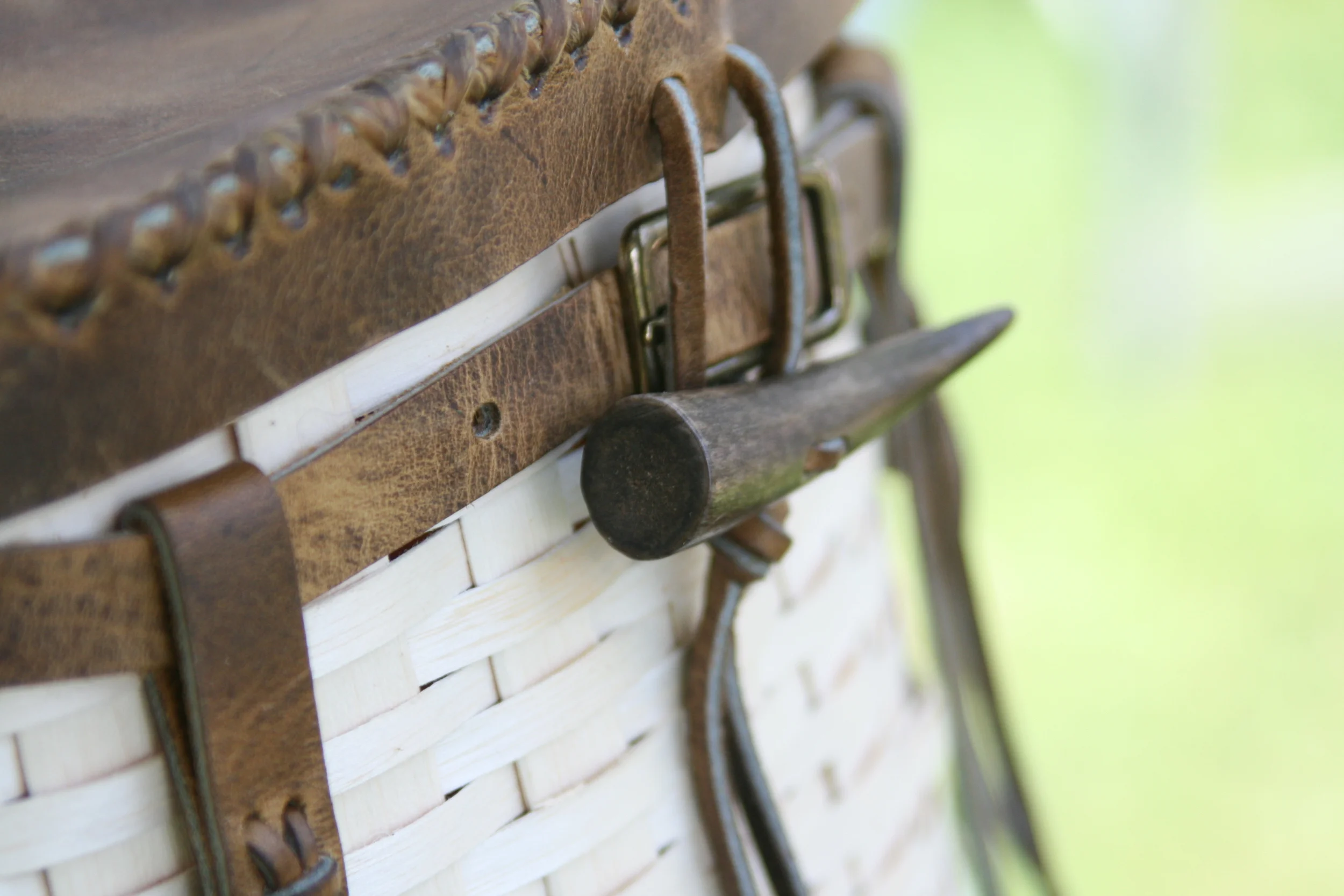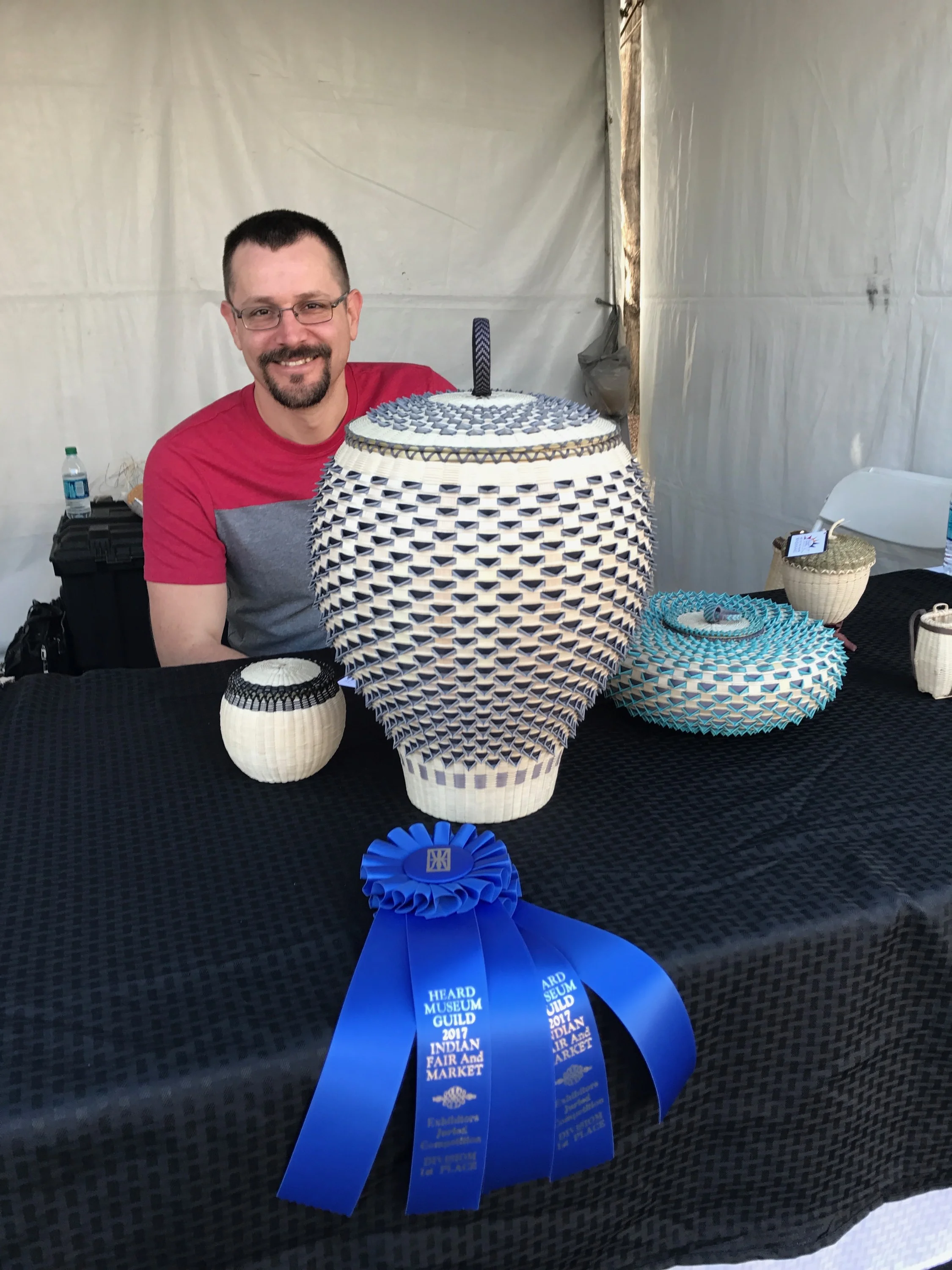Abbe Museum to Host Indian Market in Bar Harbor
/The Abbe Museum is excited to announce that we will host a three-day Abbe Museum Indian Market (AMIM) in downtown Bar Harbor on May 18-20, 2018. This event will harness the profitability of the Bar Harbor economy for the benefit of tribal communities and in return, generate approximately $250,000 per year for the local economy at a time when lodging and restaurant businesses are in need of visitors.
"The Abbe Museum brings so much to this community in the way of culture, education, and history and offers so much to our visitors,” said Martha Searchfield, the executive director of the Bar Harbor Chamber of Commerce. “The creation of this exciting new event is yet another way in which we all benefit from the hard work and vision of the Museum. The business community will prosper tremendously from the addition of an event of this magnitude.”
Small festivals are found throughout the year in Maine, but a juried Indian art show is relatively unknown in the Northeast. Award-winning Wabanaki artists like Jeremy Frey, Theresa Secord, David Moses Bridges, Emma Soctomah, Geo Neptune, and Sarah Sockbeson have traveled out West over the past few years to participate in the Indian Arts marketplace. They’ve repeatedly taken top prizes in Sante Fe and Phoenix. However, traveling long distances to attend the Indian Arts marketplace is often a hardship that prevents more artists from entering.
“The Northeast is lacking in opportunity for local artists to sell their art on a national scale,” said Suzanne Greenlaw, an apprentice Maliseet basketmaker. “The expense of traveling makes Western Native Art shows unattainable for many and I would be thrilled to see these local Native artisans sell their art on the level the Abbe Museum Indian Market can provide. The opportunity for economic gains and the possibility for artisans to gain confidence will have significant immeasurable impacts for Native communities.”
Jeremy Frey, Passamaquoddy, with his winning basket at the 2017 Santa Fe Indian Market.
By creating this event, the Museum will shine a bright light on Wabanaki artists and deepen the economic impact of art making for tribal communities. Artists will be more likely to work full-time, more people will have the opportunity to make a living through art, remnant art forms will be revitalized, and innovation will have even more room to develop.
“Wabanaki peoples have rich and varied artistic traditions—many of which are underappreciated,” said Bonnie Newsom, Penobscot. “Having a Northeast venue to celebrate and share our artistic gifts with the world will not only strengthen these traditions within our communities, but it will also position these traditions in their rightful place as respected art forms unique to Maine.”
As the newly hired AMIM Producer, Dawn Spears, Narragansett/Choctaw, will focus on creating and launching the annual market and coordinating the activities, tasks, and events leading up to it. Spears has been working in the field for the last two decades, recently as the Executive Director of Northeast Indigenous Arts Alliance (NIAA) where she works to support the Native American artist population regionally by sharing resources and artist opportunities, addressing artist needs, and seeking ways to increase the visibility in the northeast.
“Many do not realize the level of artistry that exists here in the northeast and AMIM will be the perfect way to showcase our homegrown talent alongside artists representing tribal nations from across the country,” Spears said. “Artists from across the nation are invited and welcome to come and visit the Wabanaki homeland.”
In addition to a two-day market, we're also planning a concurrent Indigenous film festival and a fashion show. And, as the event grows: a marketplace in the streets, an artist competition, a gala event, and the opportunity to taste Native cuisine.
“As Northeastern indigenous art—and more specifically, Wabanaki art—continues to gain the attention of collectors from around the world, I believe that Bar Harbor is poised to become the “Santa Fe” of the Northeast: a place where visitors from many walks of life come to experience Indigenous North American history and culture,” said Geo Neptune, a Passamaquoddy Master Basketmaker. “Given the Abbe’s history of working with Wabanaki people and the admirable goals set by their current strategic plan, I am confident that the Abbe Museum is the only organization that is able, with the support of its community and partners, to make this dream become a reality.”
We'll reveal more details throughout 2017 on www.abbemuseum.org/indianmarket. Indigenous artists interested in participating in the Abbe Museum Indian Market should get in touch with Dawn Spears at dawn@abbemuseum.org or 207-801-4088.








